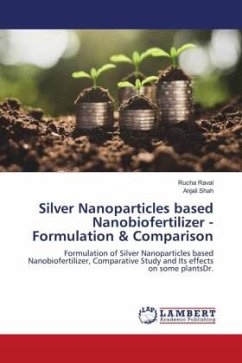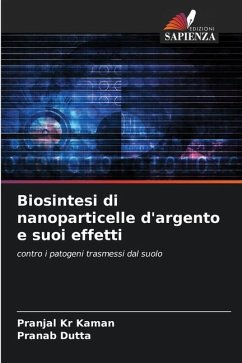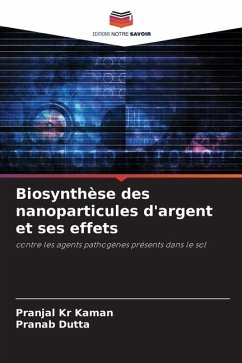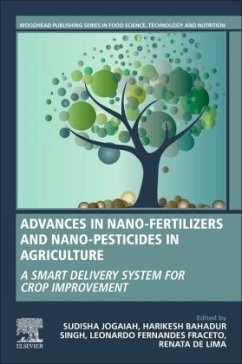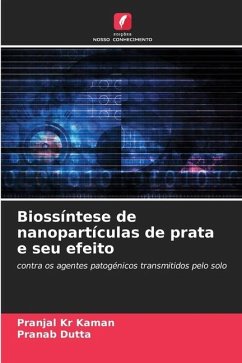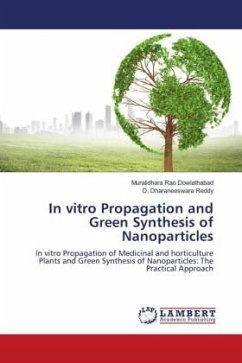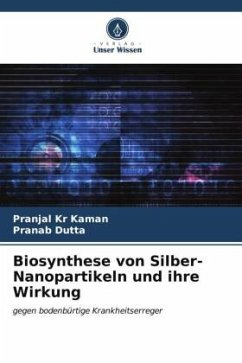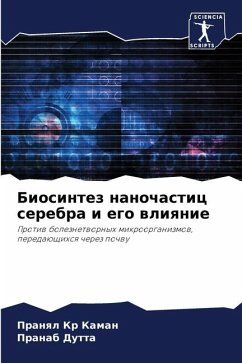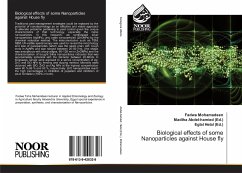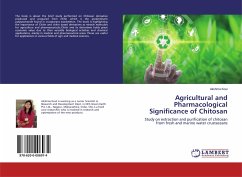
Biosynthesis of Silver Nanoparticles and its Effect
against Soil Borne Pathogens
Versandkostenfrei!
Versandfertig in 6-10 Tagen
29,99 €
inkl. MwSt.

PAYBACK Punkte
15 °P sammeln!
Development of reliable and eco-friendly process for synthesis of metallic nanoparticle is an important steps in the field of nanotechnology. An effort was made for biosynthesis of silver nanoparticles from Trichoderma asperallum, a potential indigenous biocontrol agents. Silver nitrate was added as precursor for the synthesis of silver nanoparticles. The biosynthesized silver nanoparticles was characterized by UV-Vis spectrophotometer, Dynamic Light Scattering (DLS), X-ray diffraction (XRD), Zeta Sizer and Transmission Electron Microscope (TEM). UV Vis spectrum of aqueous medium containing si...
Development of reliable and eco-friendly process for synthesis of metallic nanoparticle is an important steps in the field of nanotechnology. An effort was made for biosynthesis of silver nanoparticles from Trichoderma asperallum, a potential indigenous biocontrol agents. Silver nitrate was added as precursor for the synthesis of silver nanoparticles. The biosynthesized silver nanoparticles was characterized by UV-Vis spectrophotometer, Dynamic Light Scattering (DLS), X-ray diffraction (XRD), Zeta Sizer and Transmission Electron Microscope (TEM). UV Vis spectrum of aqueous medium containing silver ion showed peak at a wavelength of 420 nm corresponding Plasmon Absorption of silver nanoparticle. DLS study showed that the biosynthesized silver nanoparticles have a size of 27.64 nm with polydispersity index (PDI) of 0.409. This indicates that the biosybthesized nanoparticle were polydispersed in nature. The charge of silver nanoparticles was determined by zeta sizer and found to have negative potential value of -1.34 and indicated as stable on dispersion. TEM study revealed the formation well dispersed silver nanoparticles in the range of 9-41 nm with roughly spherical in shape.



